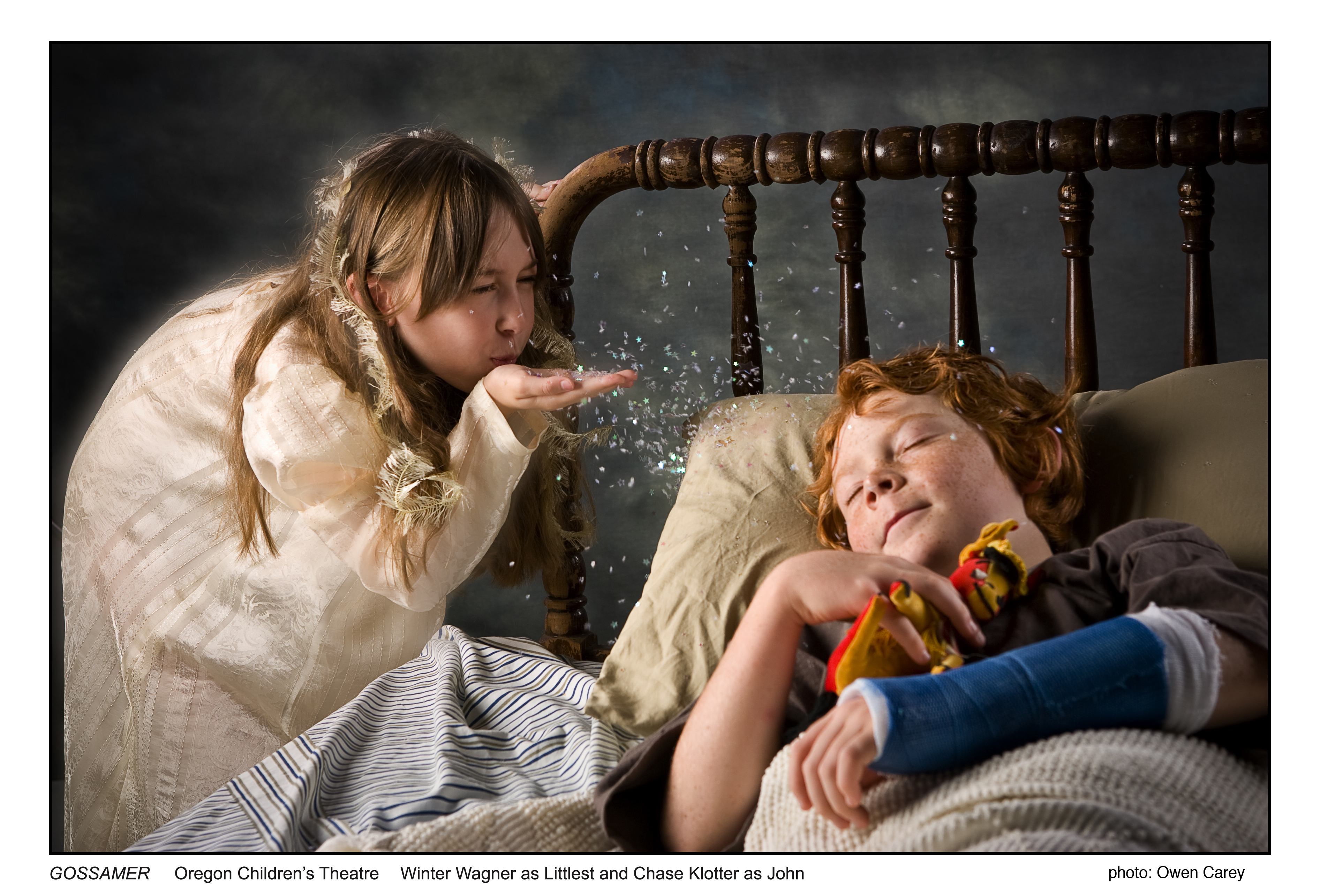Gossamer has lost weight since its robust Middle English youth. These days we think of gossamer as light, airy, elusive, delicate, evanescent. Yet in its original form it was a simple compound of the terms for goose and summer. A sturdy word, with physical impact. The squawk and peck and heft of a barnyard bird. The good green moss and fern by the banks of a summer stream. Things you hear and feel and smell and touch.
Yet all that is solid fades away, and in that disappearance is the essence of gossamer. Gossamer flits in and out of physical reality. Now you see it. Now you don’t. A memory, a tickle, a promise, a hint. A window between worlds, whispered.
Tuesday morning, in the faded light of a perfect autumn day, I drove into downtown Portland to the Dolores Winningstad Theatre to take in the premiere of Gossamer, Newbery Award winner Lois Lowry‘s stage adaptation of her own children’s novel, with a crowd of fifth through seventh graders. Yes, Oregon Children’s Theatre‘s production has its shimmery moments — it’s about dreams and the benevolent, more- and less- than human race that creates them — but director Stan Foote keeps things grounded in the physical. These supposed creatures of the ether, with their impetuous curiosity and sturdy country ways, seem like yeomen and women of the goose-summer days. They’re like characters from Piers Ploughman.
Little wonder. Lowry’s dream makers, who aren’t quite sure themselves exactly who and what they are, exist in the imagination — and in this formulation, “exist” and “imagination” carry equal weight. They are caretakers of humans (and animals, too), and therefore linked to corporeality, even if they are only fleetingly embodied themselves. Like so many good stories for children — Mary Norton‘s The Borrowers, William Mayne‘s Hob and the Goblins — they give concrete form and personality to unexplainable things. And like the Christian transcendentalists of children’s lit, Madeleine L’Engle and C.S. Lewis (you could add Tolkien, but in spite of his grand-scale moral dualism he seems so much more thoroughly earthen to me), Lowry creates a world in which an unseen battle between good and evil, knowledge and ignorance, love and anger is just offstage of the human characters’ lives, determining the actions and reactions of what they see.
